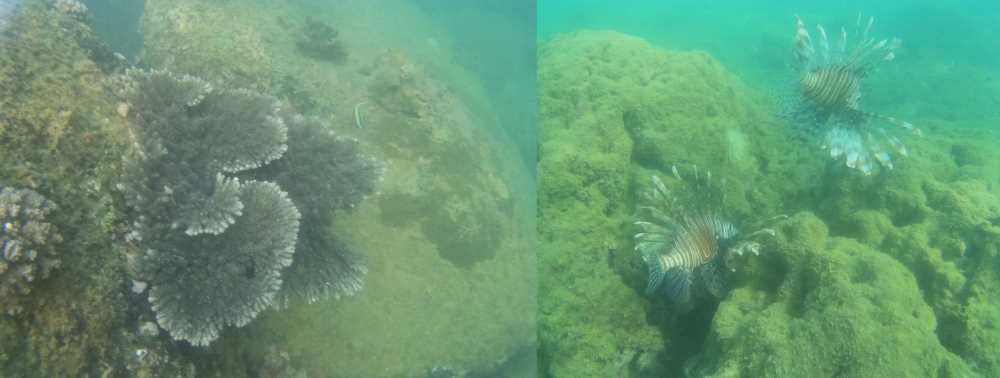
DIMO, a leading conglomerate in Sri Lanka, constantly engineers marine environment protection initiatives, aligned with the UN Sustainable Development Goals (SDGs) which focus on ‘Life Below Water’ and ‘Life on Land’. DIMO has partnered with like-minded organizations to ensure successful implementation of these projects, which are carried out as a part of its sustainability agenda, identifying the dire need to protect our marine environment to achieve a better and more sustainable future for all.
Mr. Ranjith Pandithage, Chairman & Managing Director of DIMO, stated, “Initiatives such as environment and biodiversity protection is driven by great passion and DIMO is proud to be at the forefront of these initiatives. DIMO continues to commit to protect the marine environment and preserve it for the future generations while fuelling the dreams and aspirations of individuals by focusing on uplifting the livelihoods of nearby communities as well.”
DIMO first ventured into such a marine environment protection initiative back in 2012 with the ‘Panama Project’, which focused on turtle conservation. Sea turtles, while playing a key role in the marine ecosystem at a global level, are facing many threats such as illegal trading and climate change. These endangered species are prone to extinct unless immediate measures are taken to conserve them and their nesting grounds.

Such has been a major concern in the stretch from Panama to Okanda which is a famous nesting ground for mainly Olive Ridley (90%), Green turtle (5%) and Loggerhead turtles (5%). DIMO, together with the Wildlife & Ocean Resource Conservation (WORC), carried out several timely initiatives and the company was able to release more than 150,000 hatchlings to open water. In order to protect the eggs from natural predators, DIMO took the initiative to build a cage, with an emphasis on the safety of the nests, covering them where the turtle hatchlings could come out through the gaps of the cage. In addition, DIMO also offers a steady wage to the appointed members of the community for looking after the eggs, thereby empowering the community, and discouraging illegal activities within the locality. Taking another step forward, the community was also enlightened with useful knowledge on how they can contribute to protect the turtle nests. The awareness programs were especially helpful for the children and their parents to refrain from collecting turtle eggs leading to them being damaged and also to pledge to protect the turtle nests.
The ‘Life to Reef’ project, another impact project launched by DIMO, was initiated in 2017 aiming to restore beautiful coral reefs in the Bonavista Reef at Rumassala near Galle. In its journey so far, several coral restoration techniques have been used, including planting corals on cement structures, metal frames and nursery racks which have been deposited by divers at the bottom of the sea. Since the project’s inception 5 years ago, a total of 3,500 nubbins have been planted while also restoring 10 reefs with nursery panels and steel racks at the sea bottom, promising continuous coral conservation activities. With these restoration techniques the project has restored nearly 4 acres of coral reef. The Bonavista reef was identified as one of the highest biologically diverse coral reefs. However, 95% of its live coral cover was destroyed due to the El-Nino caused in 2016. DIMO initiated the Life to Reef project aiming to restore the coral cover as naturally as possible, with the technical support from WORC. With this revival process, Rumassala has developed again as a major tourist destination, creating several income generating opportunities for the community.
Protecting the country’s beautiful beach stretch is another important aspect in marine environment protection under DIMO’s sustainability agenda, which indeed supports the tourism industry and recreational activities for the public. DIMO stepped forward to fund a beach cleaning project in the Dikovita area, which is carried out in collaboration with the Marine Environment Protection Authority (MEPA), the Department of Samurdhi Development and Biodiversity Sri Lanka (BSL). Under this Public-Private-Community partnership, DIMO has funded for 2 beach stretches – Dikovita (800m) and Dikovita to New Bridge (800m). Post the completion of this year-long project, to ensure its continuity, a selected family will be mandated with the task of cleaning each of the beach stretches and will be financially assisted for their contribution.
While BSL and MEPA provide directions to make the best use of the collected waste, the beach cleaning initiatives will open up opportunities for the nearby communities to recycle the trash as well. Through its hands-on experience, DIMO continues to create awareness amongst the communities on the immense benefits of recycling even a small amount of trash.
DIMO, together with its public and private sector partners, remains committed to engaging in environmental and biodiversity initiatives to help create and conserve a sustainable environment for generations to come.



